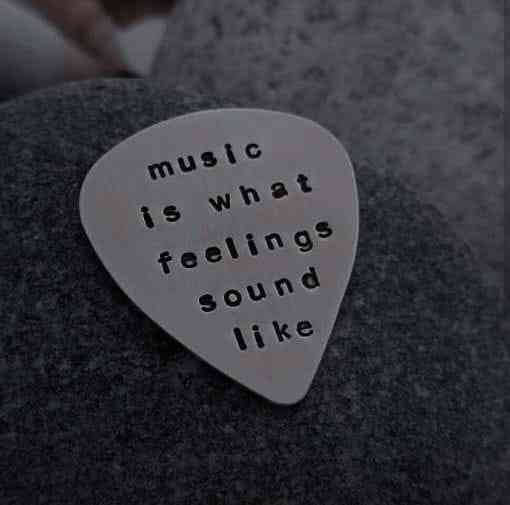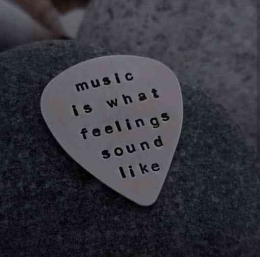Do you spend most of your time lying down in bed not doing much of anything, feeling tired and unmotivated? Perhaps it is a sign for you as you have feelings of burnout. Burnout is a negative experience that results in decreased motivation and prolonged emotional, physical and mental exhaustion. Besides that, burnout is a phenomenon thought to be brought on by ongoing work-related stress that is not well handled. (WHO, 2019). If you experience constant burnout, you may end up living a life on autopilot without any enjoyment, meaning, or purpose. Furthermore, burnout can affect anyone, regardless of age, profession or socioeconomic status. Not even a consensus has been reached by researchers over how to address the psychological and physical impacts of burnout. Afterwards, what can be done by individuals to alleviate the symptoms? Music may provide one way to solve this kind of problem. It has been established that music helps reduce burnout.
Research suggests that music therapies can have a good effect on emotional well-being, stress reduction, relaxation, and depression for adults (Mona Lisa Chanda, 2013). Music may be utilized in daily activities in an easy and affordable way, making it an effective option for managing burnout. When music is used to support daily activities, it has the potential to affect the symptoms of burnout, including mood, cognition, and performance. Music has been used and studied to support mental health for many decades, with applications ranging from general mood enhancement and stress reduction to clinical interventions for Serious Mental Illness (SMI) (Golden, et al., 2021). According to this review, music has a complex and wide-ranging nature that makes it a promising asset. It implies that strategies based on music can be flexible and adaptable when used as therapies for Serious Mental Illness (SMI) interventions (Golden, et al., 2021).In addition, music possesses distinct neurobiological and psychological effects (Boso, Politi, Barale, & Enzo, 2006) that could potentially combine with other clinically significant health care outcomes to generate complexity pathways (Guise, Christine, Mary, Meera, & Peter, 2017).
The affective aspect of pain is stimulated together with a cognitive and emotional response by the various musical aspects of rhythm, melody, harmony, and pace. This encourages improved healing and has an advantageous impact on mood (Bernatzky, 2011). According to (Bradt, Dileo, Myers-Coffman, & Biondo, 2021), music therapy and music medicine interventions increased cancer patients' anxiety, pain, mood, quality of life, heart rate, oxygen consumption, and blood pressure. To sum up, the power of music has researched how music can be a powerful tool to influence cognition and mood. Music helps people achieve their wellness goals. Therefore, it is crucial that music supports people when their mood changes from an anxious or melancholy state to a relaxed or satisfied one. The power of music to cure burnout syndrome is one of the most effective ways.
References
Bernatzky, G. M. (2011). Emotional foundations of music as a non-pharmacological pain management tool in modern medicine. Neuroscience and Biobehavioral Reviews, 1989 -- 1999. doi:10.1016/J.NEUBIOREV.2011.06.005
Boso, M., Politi, P., Barale, F., & Enzo, E. (2006, October-December 26). Neurophysiology and neurobiology of the musical experience. Funct Neurol, pp. 187-91. Retrieved from https://pubmed.ncbi.nlm.nih.gov/17367577/
Bradt, J., Dileo, C., Myers-Coffman, K., & Biondo, J. (2021). Music interventions for improving psychological and physical outcomes in people with cancer. Cochrane Database of Systematic Reviews(10). doi:10.1002/14651858.CD006911.pub4
Gabriela Tavella, D. H.-P. (2021, February 17). Burnout: Redefining its key symptoms. Psychiatry Research, 302. doi:https://doi.org/10.1016/j.psychres.2021.114023
Golden, T. L., Springs, S., Kimme, H. J., Gupta, S., Tiedemann, A., Sandu, C. C., & Magsamen, a. S. (2021). The Use of Music in the Treatment and Management of Serious Mental Illness: A Global Scoping Review of the Literature. Front. Psychol, 12. doi:https://doi.org/10.3389/fpsyg.2021.649840
Guise, J.-M., Christine, C., Mary, B., Meera, V., & Peter, T. (2017). AHRQ series on complex intervention systematic reviews---paper 1: an introduction to a series of articles that provide guidance and tools for reviews of complex interventions. J. Clin. Epidemiol., 6--10. doi:10.1016/j.jclinepi.2017.06.011











